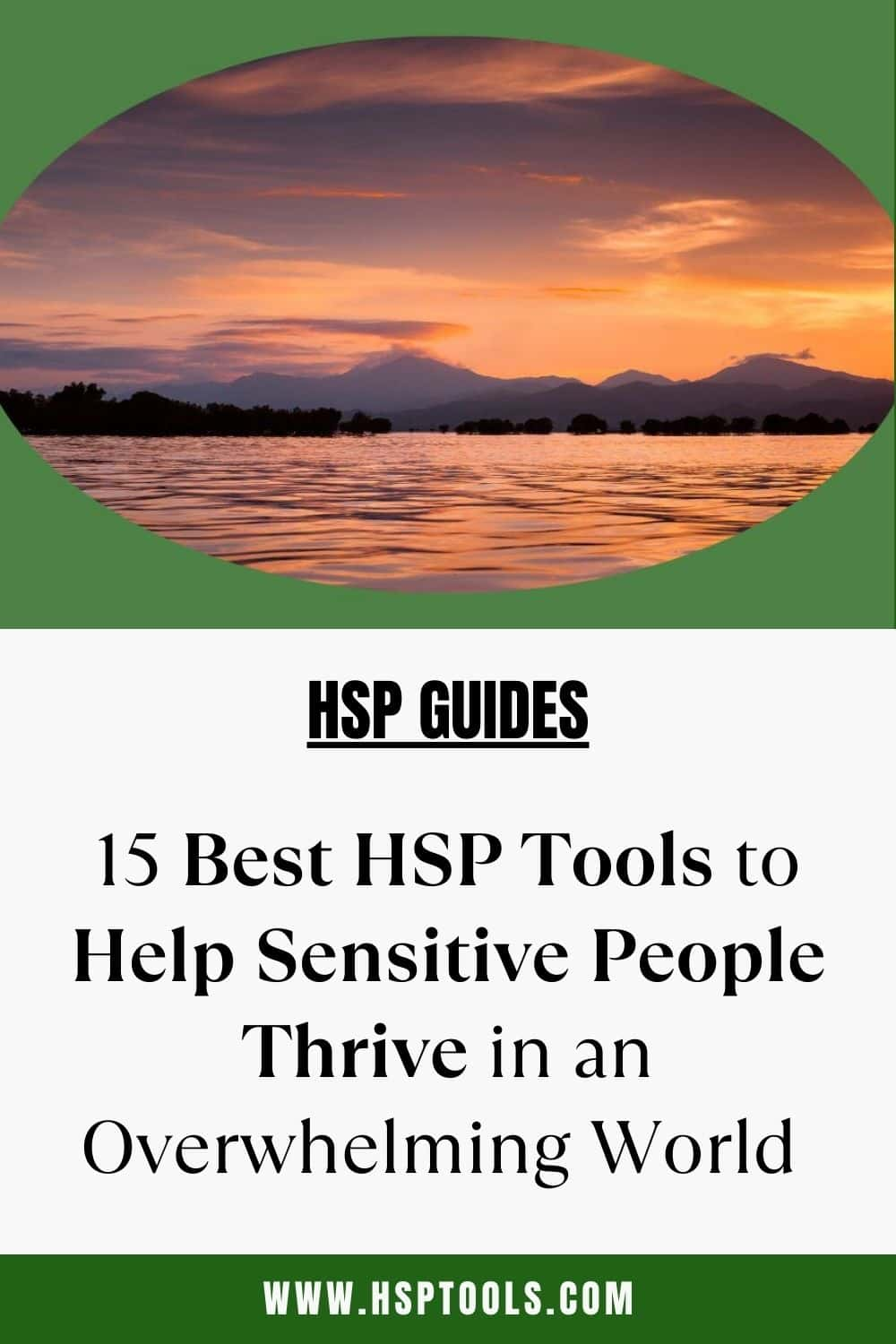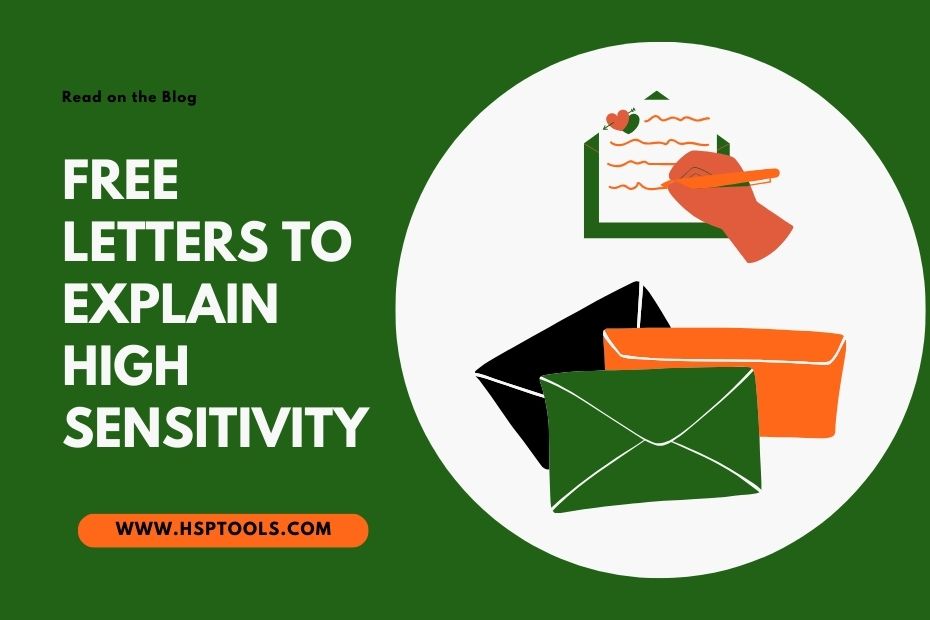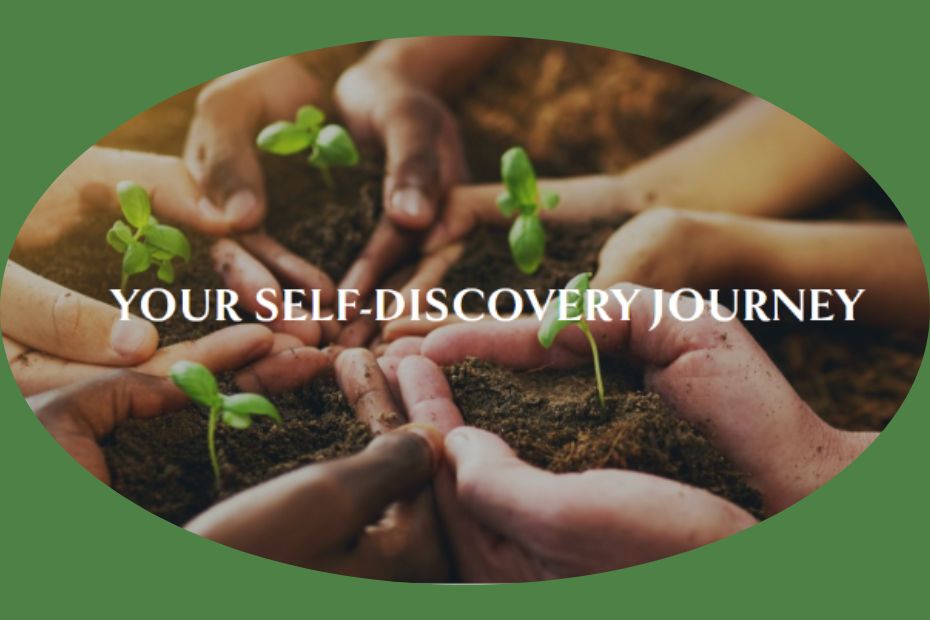15 Therapist-Approved Tools to Help You Thrive in an Overwhelming World

Have you taken the free masterclass on Tools to Help the Sensitive Thrive in a Chaotic World?
It’s a 45-minute webinar sharing the best tools, techniques and resources to help Highly Sensitive People (HSPs) go from surviving to thriving with High Sensitivity.
The best HSP tools shared in the class are not the regular resources in our directory. They are not books to read, courses to enrol in, classes to take, or guides to download.
Instead, they are daily tools you can incorporate into your self-care routine to help you overcome common sensitivity challenges like an overstimulated nervous system, depleted energy, lack of awareness, people-pleasing, and unhealthy boundaries.
Julie Bjelland, a Psychotherapist specializing in High Sensitivity and Neurodiversity, and founder of the Sensitive Empowerment community is the creator of this masterclass and sharer of these 15 best HSP tools.

Best HSP Tools Overall
1. The 4-2-7 x 5 breathing technique
Breathing techniques come in different formats and help reduce anxiety, stress, panic attacks, sleep issues, and more. Their primary purpose is to help you relax and slow down.
With the 4-2-7 x 5 breathing technique, you inhale for four seconds, hold for two, and exhale for seven. And then, you repeat this exercise five times.
The technique works immediately, tells your brain to calm down during a stressful event, and reduces your heart rate.
2. Intentional Positivity
In a world where negativity seems to reign, HSPs benefit more when they control the type of information they take in.
Instead of letting Social Media algorithms, influencers, and media companies dictate the content you consume, you get to decide.
And the best way to take charge is through intentional positivity.
So, for every negative information you read or receive, intentionally expose yourself to at least five positives. The more positives you take in, the better.
According to Julie Bjelland, while the effects of negativity are immediate, positivity takes 20-30 seconds.
3. Intentional Gratitude
The gratitude practice is one of the most cliche tools on the internet. And the reason for its popularity is simple – it works!
By intentionally reflecting on everything good in your life, you automatically tell your brain to focus on the positive aspects of every situation.
So, instead of freezing or running from an overwhelming situation, your brain will try to find solutions. And these solutions can be physical, emotional, or social.
It might remind you to wear sunglasses on a bright day, ear plugs for noise reduction, or cut out an annoying clothing tag.
Daily HSP Tools to Calm Your Nervous System
4. Slow Mornings
Do you wake up and jump straight into your to-do list? Or do you allow your body to transition from sleep into being awake?
According to Julie Bjelland, the best way to calm your nervous system and manage your anxiety and stress is to have slow mornings.
Start by listening to your body to identify what it needs. Feel a tight muscle? Stretch it. Feel thirsty? Have a glass of water. Have too many thoughts? Meditate.
5. Unstructured alone time
While HSPs benefit more from having structure in their daily lives, unstructured alone time helps to process thoughts and emotions, rest from the day’s exhaustion, and restore lost energy.
Block out a time in your day when you can be alone in a sensory-friendly environment.
6. Daily stillness in nature
Nature is highly therapeutic for Highly Sensitive People (HSPs). And if nature walks are a go-to exercise for you, then you know how true that statement is.
Julie Bjelland recommends daily access to nature.
If you can’t go out, bring nature to you through indoor plants and take a moment in your day to immerse yourself in its beauty.
7. Daily meditation
Meditation is an exercise that helps individuals to improve their attention, awareness, and calm states. There are different forms of meditation, and knowing which type works best for you is the first step.
If you need help creating a meditation habit, Julie Bjelland shares free guided meditations through her HSP podcast.
8. Loving self-talk
We all talk to ourselves at one time or more in a day. But the question is, what do you say to yourself when you do? Is your self-talk loving or hateful?
Pay attention to your daily self-talk and intentionally use loving language.
Tools to Increase Self-Awareness
9. The check-in tool
How often do you check in with yourself to know how you’re doing? Think about the last time you set aside time to evaluate your well-being. How long ago was it?
When you know your mental, emotional, social and physical health, you can show up in less overwhelming ways.
You can also avoid overstimulating situations when you know your body is not in a position to handle them.
10. Intentional Mindfulness
Mindfulness requires paying attention to your feelings, senses, thoughts, and overall state of being without judgment or action.
It’s a powerful self-awareness tool for everyone, not just Highly Sensitive People (HSPs).
Intentional mindfulness can help you notice what feels right and what doesn’t. And it can help you slow down to appreciate the good and attend to the bad.
Techniques to Balance Your Energy
I have shared the best HSP tools for overall well-being and daily calming tools for your nervous system.
In this section, learn techniques to help balance your energy and avoid constant depletion.
11. Map out your energy
Imagine starting the day with 100 energy points. Instead of going about your day and letting your energy points get used up as you go, decide where you want your energy to go.
For instance, you can appoint 10 points to friends, 30 to family, 20 to self-care, etc.
12. Track your energy points
Planning your energy is crucial in helping you achieve balance. But you also need to know where it’s going for it to be effective.
So, track how much energy you use on your family, work, yourself, and others. And then, adjust your plan accordingly by giving more points to what makes you happy.
13. Boundary setting
Get good at setting boundaries with people and situations so you can only use as much energy as you plan to. Otherwise, a lack of boundaries would mean constant depletion.
This free class teaches HSPs how to set healthy boundaries and explains why boundary setting is essential for wellness.
14. Do more of what gives you vitality
Planning where your energy goes helps you maintain your energy levels. But it’s not the only technique you can implement.
You can also boost your energy by identifying your energetic activities and doing more of them.
15. Take a quiet day before and after draining situations
If you have an upcoming busy day, block out the day before and after to focus on rest and restoration.
During this time, focus only on what replenishes your energy.

Final Word on 15 Therapist-Approved Tools
This list of best HSP tools and techniques comes highly recommended by Julie Bjelland – a Psychotherapist specializing in High Sensitivity.
I learned of them through her free HSP masterclass about tools to help the sensitive thrive in a chaotic world. And while we shared as much as possible, there’s a chance we left out even more tools.
So, take the class yourself, and we hope you find these best HSP tools as practical and helpful as we did.
If you need extra support and more tools to help you thrive as an HSP, join the Sensitive Empowerment Community by Julie Bjelland.
You will meet other HSPs, attend live events, join topical support groups, and discover an extensive library of resources.
***








